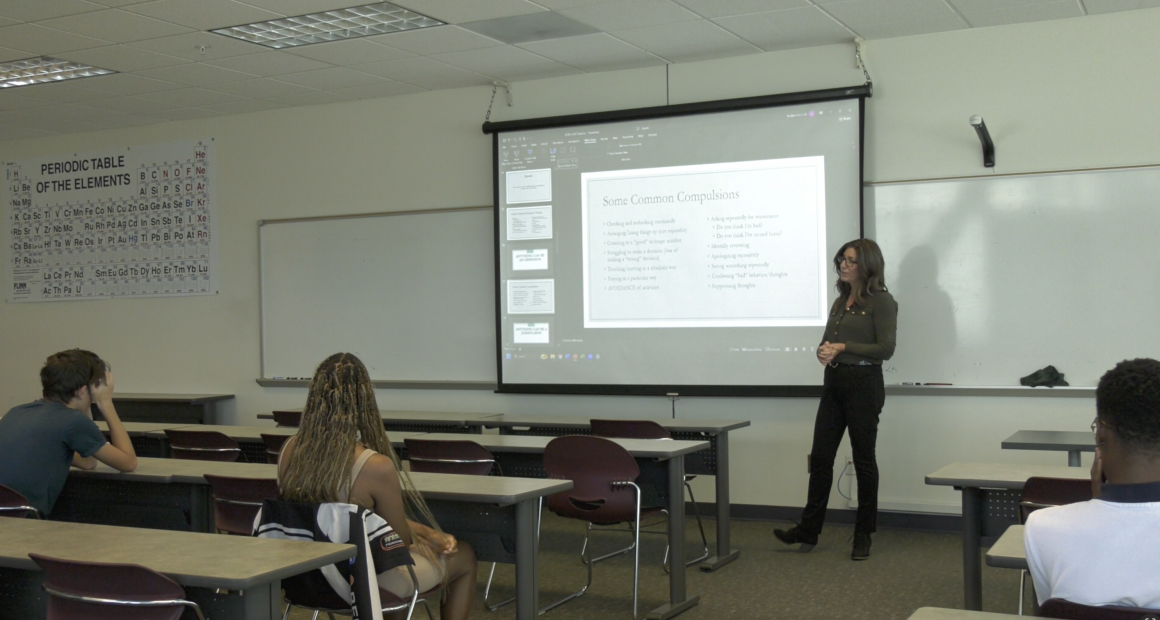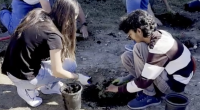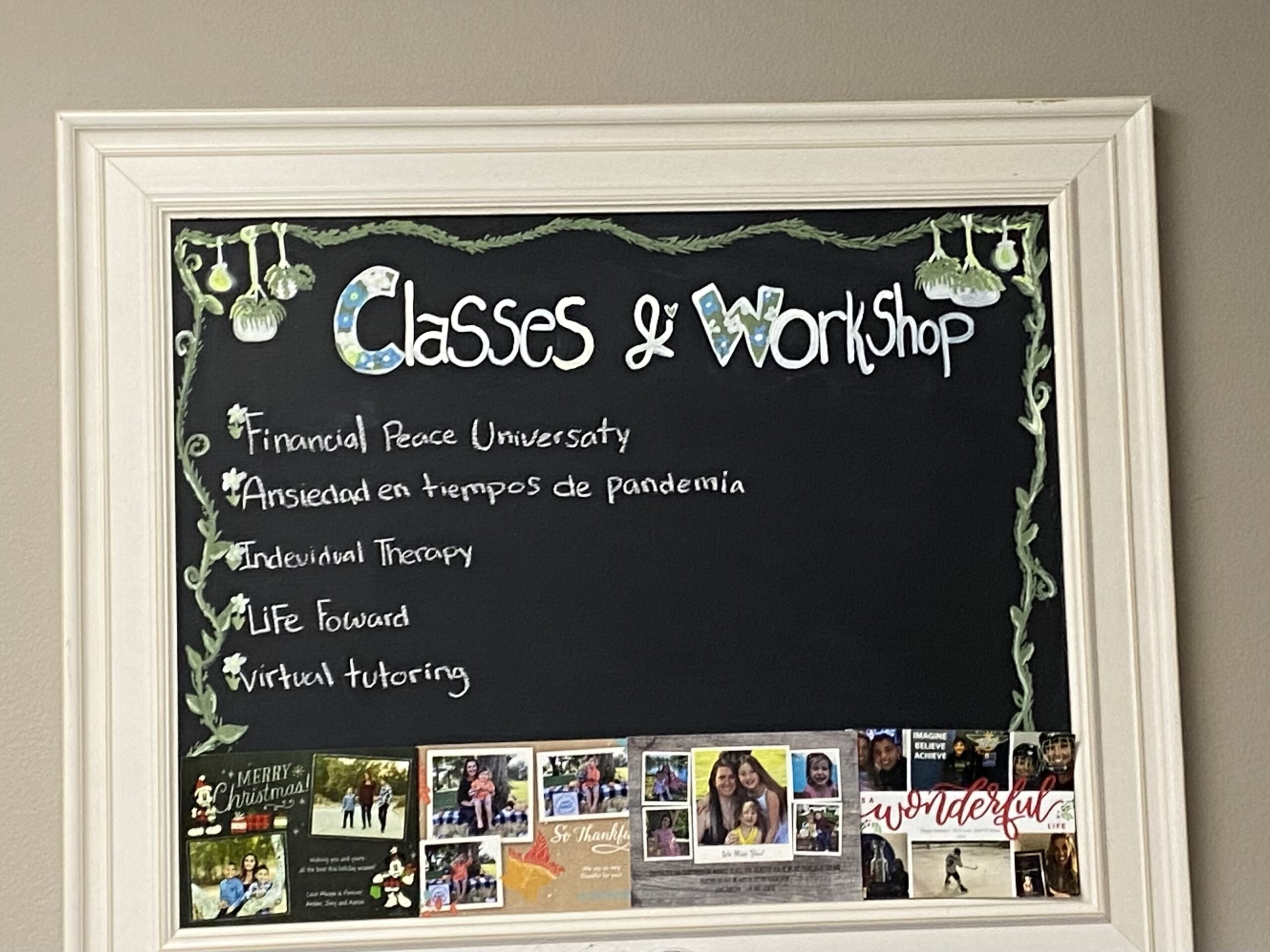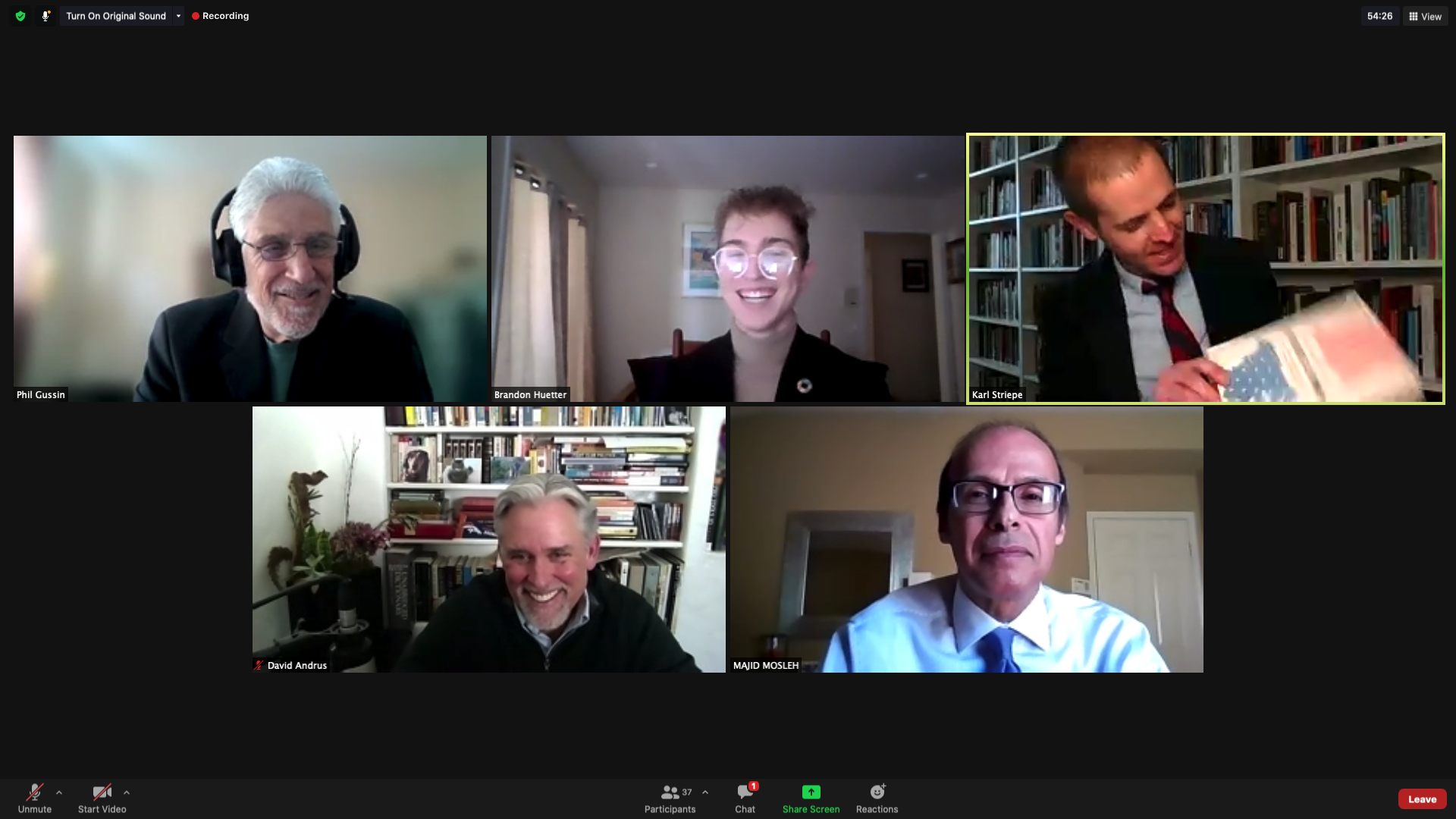The event was hosted by the Student Health & Wellness Center, featuring licensed psychologist Dr. Michelle Witkin, who discussed the realities of OCD and addressed common misconceptions about it.
“Some common misconceptions are that people with OCD are picky germophobes who like things organized in a certain way,” said Dr. Michelle Witkin, a licensed psychologist.
“Often, when people say, I’m so OCD, what they mean is that they like things a certain way or prefer to do things a certain way,” said Dr. Witkin.
“What I want people to know about OCD is that OCD is actually torture to the people who have it,” continued Dr. Witkin.
“This involves having unwanted thoughts, images, or urges that appear. And they can be about any topic at all,” said Dr. Witkin.
“Not about, not necessarily, it can be, but it’s not necessarily about cleanliness or things being arranged. But it’s having thoughts come into your head that feel horrible,” said Dr. Witkin.
Dr. Witkin explained that OCD is a mental health disorder marked by obsessions and compulsions. It involves having unwanted thoughts that cause anxiety, and repeated behaviors people do to try to feel better.
These thoughts and actions can take up a lot of time and make daily life harder if not treated. “And they wish. They wish that they weren’t bothered by the thoughts and images, and they wish that they didn’t have to do the behaviors”, continued Dr. Witkin.
“The behaviors aren’t preferences. They’re in a cycle that a person is caught up in that is causing their life to suffer,” said Dr. Witkin.
Dr. Witkin shared a video with resources like the International OCD Foundation and OCD Southern California.
She said these organizations provide reliable information, self-help tools, and connections to professional treatment for people experiencing OCD symptoms.









